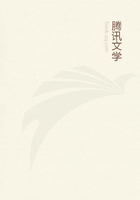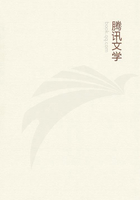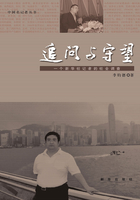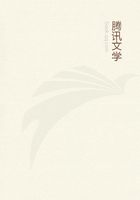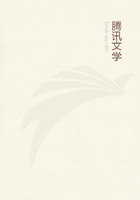With this agree perfectly the judicial sentences of that wonderful faculty in us which we call conscience.A man may use as much art as he likes in order to paint to himself an unlawful act, that he remembers, as an unintentional error, a mere oversight, such as one can never altogether avoid, and therefore as something in which he was carried away by the stream of physical necessity, and thus to make himself out innocent, yet he finds that the advocate who speaks in his favour can by no means silence the accuser within, if only he is conscious that at the time when he did this wrong he was in his senses, that is, in possession of his freedom; and, nevertheless, he accounts for his error from some bad habits, which by gradual neglect of attention he has allowed to grow upon him to such a degree that he can regard his error as its natural consequence, although this cannot protect him from the blame and reproach which he casts upon himself.This is also the ground of repentance for a long past action at every recollection of it; a painful feeling produced by the moral sentiment, and which is practically void in so far as it cannot serve to undo what has been done.(Hence Priestley, as a true and consistent fatalist, declares it absurd, and he deserves to be commended for this candour more than those who, while they maintain the mechanism of the will in fact, and its freedom in words only, yet wish it to be thought that they include it in their system of compromise, although they do not explain the possibility of such moral imputation.) But the pain is quite legitimate, because when the law of our intelligible [supersensible] existence (the moral law) is in question, reason recognizes no distinction of time, and only asks whether the event belongs to me, as my act, and then always morally connects the same feeling with it, whether it has happened just now or long ago.For in reference to the supersensible consciousness of its existence (i.e., freedom) the life of sense is but a single phenomenon, which, inasmuch as it contains merely manifestations of the mental disposition with regard to the moral law (i.e., of the character), must be judged not according to the physical necessity that belongs to it as phenomenon, but according to the absolute spontaneity of freedom.It may therefore be admitted that, if it were possible to have so profound an insight into a man's mental character as shown by internal as well as external actions as to know all its motives, even the smallest, and likewise all the external occasions that can influence them, we could calculate a man's conduct for the future with as great certainty as a lunar or solar eclipse; and nevertheless we may maintain that the man is free.In fact, if we were capable of a further glance, namely, an intellectual intuition of the same subject (which indeed is not granted to us, and instead of it we have only the rational concept), then we should perceive that this whole chain of appearances in regard to all that concerns the moral laws depends on the spontaneity of the subject as a thing in itself, of the determination of which no physical explanation can be given.In default of this intuition, the moral law assures us of this distinction between the relation of our actions as appearance to our sensible nature, and the relation of this sensible nature to the supersensible substratum in us.In this view, which is natural to our reason, though inexplicable, we can also justify some judgements which we passed with all conscientiousness, and which yet at first sight seem quite opposed to all equity.There are cases in which men, even with the same education which has been profitable to others, yet show such early depravity, and so continue to progress in it to years of manhood, that they are thought to be born villains, and their character altogether incapable of improvement; and nevertheless they are judged for what they do or leave undone, they are reproached for their faults as guilty; nay, they themselves (the children) regard these reproaches as well founded, exactly as if in spite of the hopeless natural quality of mind ascribed to them, they remained just as responsible as any other man.This could not happen if we did not suppose that whatever springs from a man's choice (as every action intentionally performed undoubtedly does) has as its foundation a free causality, which from early youth expresses its character in its manifestations (i.e., actions).These, on account of the uniformity of conduct, exhibit a natural connection, which however does not make the vicious quality of the will necessary, but on the contrary, is the consequence of the evil principles voluntarily adopted and unchangeable, which only make it so much the more culpable and deserving of punishment.There still remains a difficulty in the combination of freedom with the mechanism of nature in a being belonging to the world of sense; a difficulty which, even after all the foregoing is admitted, threatens freedom with complete destruction.But with this danger there is also a circumstance that offers hope of an issue still favourable to freedom; namely, that the same difficulty presses much more strongly (in fact as we shall presently see, presses only) on the system that holds the existence determinable in time and space to be the existence of things in themselves; it does not therefore oblige us to give up our capital supposition of the ideality of time as a mere form of sensible intuition, and consequently as a mere manner of representation which is proper to the subject as belonging to the world of sense; and therefore it only requires that this view be reconciled with this idea.
同类推荐
热门推荐
中美比较(吴晓波频道 思想食堂系列)
大头思想食堂由财经作家吴晓波发起,致力于为中国的有产阶级提供最丰富,最有价值的思想食粮。思想食堂采取线下授课的方式,每半月邀请一位大咖来给会员们分享,课程内容涵盖经济、历史、政治、哲学、艺术、国际关系等范畴。思想食堂系列图书是大头思想食堂内部演讲稿首次公开,每本书独立主题,让你一手掌握经济、历史、政治、哲学、艺术等知识。《中美比较》中,秦朔通过中美价值观、经济、科技等的对比,为我们展示出两国的文化、经济差异。事例详实,语言轻松活波,让你只需看这本书,就能轻松了解美国文化,并能在两国对比中深入的认识中国。幼时忆
[蓝色调简介版]可能,那应当就是我二十一年的生命里,最开心的一天了吧不过现在我依旧爱吃包子,也时而盯着桌上做得精致的美味想起那时马先生的模样,想起他拿着包子坐在我床前见我开心,自己也笑得像个傻子的样子。只是回过神来,听着喧嚣极了的城市会莫名的失落。也许穷尽一生再也买不到那样好吃的包子,买包子的人走了,那种味道也便随他离开了。留下爱吃包子的人,茫茫人海里像个孤儿。[欢脱型简介版]那段时间感觉自己一腔热血,如果那时有人给我一把枪,叫我去西双版纳捉狮子我都会去的,只要学校不阻止,我其实还想砸掉几扇初三窗户刺激刺激,但就是被约束着得以装模作样把校服袖子拉的老长老长松松垮垮披在肩上,翘着二郎腿做卷子…



